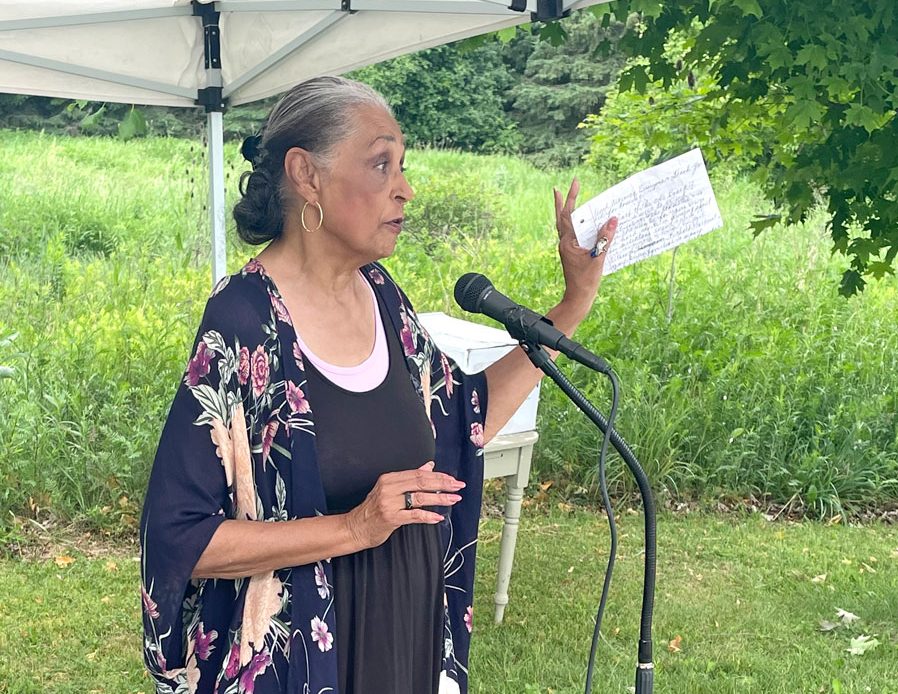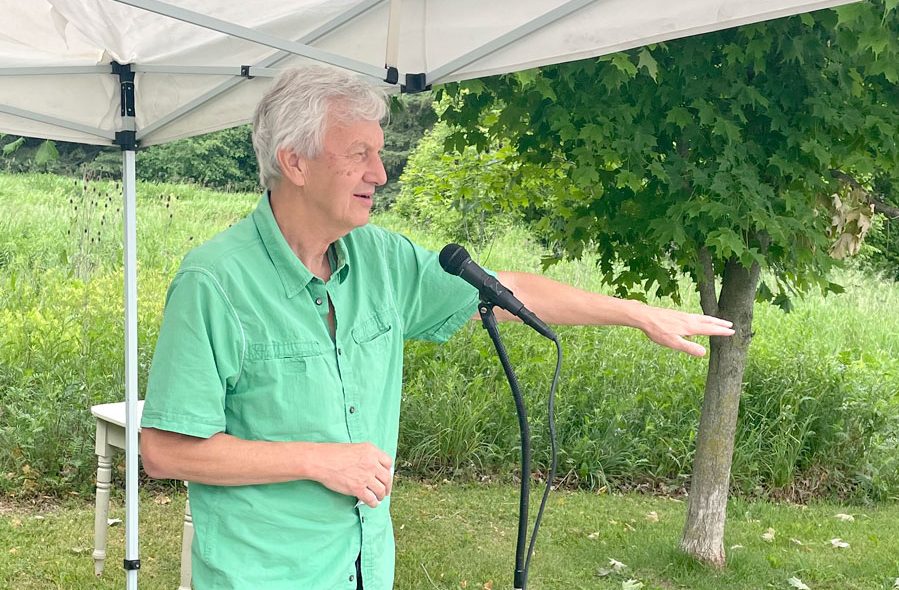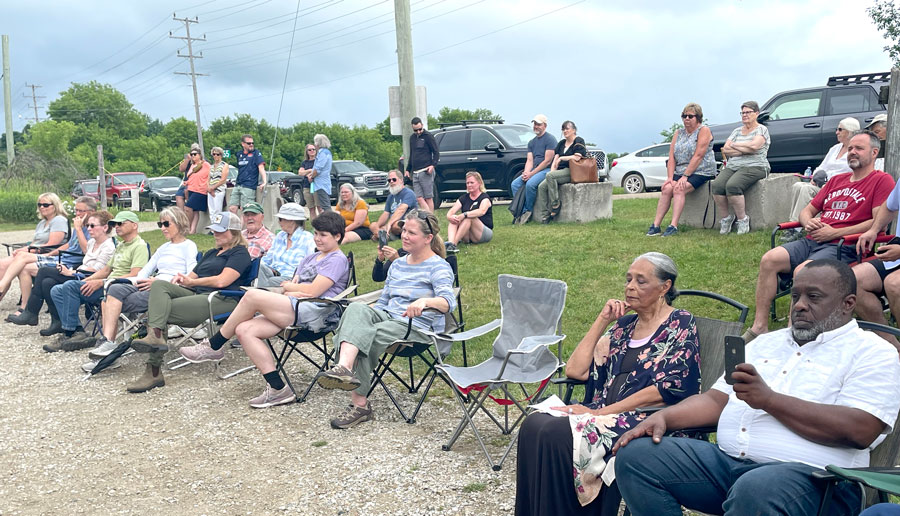FERGUS – About 40 people were on hand at Pierpoint Park last Saturday for a celebration of the “significance and uniqueness” of the parkland to the local community.
Organized by the Pierpoint Neighbourhood Group, the event featured speakers, music by folk artist and songwriter James Gordon, walking tours and a flyfishing demonstration.
Ontario Historical Society director Janie Cooper-Wilson, a great-great granddaughter of Lemuel Brown, an heir to the Pierpoint lands, thanked the neighbourhood group, as well as Mayor Shawn Watters and Centre Wellington council for their support of the Pierpoint Park.
“I wish to extend congratulations to the organizing committee, and to your community, your beautiful community, for your vision and hard work in bringing about this milestone event to promote Pierpoint Park,” said Cooper-Wilson.
The Pierpoint Fly Fishing Nature Reserve was added to Centre Wellington’s Cultural Heritage Landscape inventory and the township’s Cultural Heritage Landscapes official plan amendment project in April.
The township has started a working group to determine how to commemorate the site, with plans to pursue having the property designated under the Ontario Heritage Act.
The parkland belonged to Richard Pierpoint, a Black man abducted in 1760 from what is now Senegal, in West Africa, and later sold as a slave to a British officer.
Pierpoint fought for the British Empire during the American Revolution in 1776, and against the United States in an all-Black military unit called the Coloured Corps of Upper Canada.
“Although Richard Pierpoint may be unfamiliar to many Canadians, his name and person was, and is, well known and revered by the descendants of the first-generation African/Canadians and people of colour across the province of Ontario and Canada,” said Cooper-Wilson.

Janie Cooper-Wilson of the Ontario Historical Society and great-great granddaughter of Lemuel Brown, an heir to the Pierpoint lands.
‘True Canadian hero’
Cooper-Wilson said Pierpoint is “a true Canadian hero” noting he was a survivor of the Middle Passage (a term for an ocean voyage bringing slaves to North America) and “a fearless warrior “who defended freedom with the loyalists forces during the American Revolution and the War of 1812.
“He was a highly respected and beloved and trusted Black leader who selflessly provided shelter, sustenance, compassion, wisdom and guidance to his disenfranchised, frightened and homeless brethren in the wilderness here in Upper Canada,” she added.
Cooper-Wilson pointed out her great-great grandfather – “a fugitive, running for his life escaping from the brutality of enslavement by officers in the American army” – was among those who received support from Pierpoint.
“He was a young man who never knew his biological parents and who, like so many others that came upon Richard Pierpont … Richard took him under his wing. He became a father figure,” said Cooper-Wilson.
“I owe my very existence to both of these amazing and courageous men.”

Peter Meyler, co-author of A Stolen Life: Searching for Richard Pierpoint.
Peter Meyler, who co-author of A Stolen Life: Searching for Richard Pierpoint with his brother Dave Meyler, shared some of the key points from Pierpoint’s life with the gathering.
Meyler said he first learned of Pierpoint in 1983, from a two-volume history of Fergus that came out during the town’s sesquicentennial celebrations.
“It had a little section called The Pierpoint Settlement, so that intrigued me. And eventually I thought some marker would be put up for him, but it didn’t happen,” explained Meyler, who helped raise funds for a marker that was eventually installed in front of John Black Public School.
While A Stolen Life is now out of print, Meyler said “the research carries on” and the brothers are working on trying to get another edition out “because new information has come up.”
“Pierpoint’s story is one of those stories that, until you hear it, you don’t know how important it was. And then you don’t want it to ever be forgotten again.”




